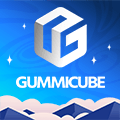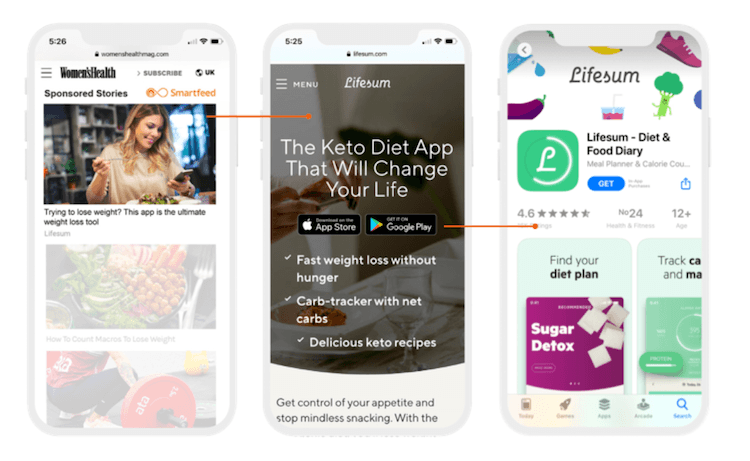Technology is so well-integrated into our lives that it’s almost hard to imagine a time when we didn’t have a smartphone. Compared to only four years ago, the current number of smartphone users worldwide has increased by 40%, at 3.5 billion. It’s a testament to the speedy evolution of the digital industry – and how quickly businesses will need to adapt to a mobile-first world.
This article was first published on Outbrain blog.
With increases in smartphone usage, apps have followed suit – look no further than the change from 500 apps available in Apple’s App store in 2008 versus the 2 million-plus apps available there today. According to eMarketer, people spend an average of two hours and 11 minutes per day using mobile apps. People actually now spend more time on their phone than watching TV.
Maximize App Growth with #1 App Store Optimization Company
Expand app store reach, increase downloads, boost engagement, lower acquisition costs & achieve higher user LTV with our leading ASO services & technology
Contact Us TodayDigital Transforms Health & Wellness
The digital industry has disrupted and challenged many sectors, including the health and fitness space. Estimates show that half of the 3.5 billion smartphone users have downloaded at least one health app. There’s an ever-increasing array of them at our disposal, with over 325,000 dedicated health apps available for download to help monitor and motivate healthier lifestyles.
Consumers don’t want to rely solely on yearly check-ups to monitor their health, or regularly visit a nutritionist to analyze their progress anymore. Even brick-and-mortar gyms are having a harder time competing against fitness apps, which are making it easier than ever to stay active with at-home workouts. The convenience and personalisation that these apps offer by providing health information where and when people want it, at an extremely low cost, is frankly unmatched. Take the US as an example, where 75% of consumers say technology is important to managing their health. These apps function as ‘smart tools’ that can be used several times per day, whether it’s to track calorie intake for better eating habits, encourage physical activity to stay on the move, or monitor sleeping regimens for mental productivity. All of this data is provided in real time at the push of a button – often for free or at a very low subscription fee.
There is an App for That
In a heavily competitive marketplace with over 2 million apps, how can a brand generate awareness for its offering and acquire new customers? How can a brand reach the right people for its product or services? This is the challenge that was faced by Lifesum, a Swedish based health app, which looks to help its customers achieve a daily balanced lifestyle.
Some marketers may be quick to say Search or Social are the answer, but Search helps those already looking for something specific and Social is peer-influenced. What about brands you and your friends don’t know exist? How do you find out about those?
This is where Native Discovery triumphs. It helps brands reach consumers who may not know that their app even exists. As consumers explore the open web and look for that “what’s next” moment, Native provides an opportunity for consumers to discover and interact with new brands.
For this reason, Lifesum sought a native advertising partner that could own all stages of the funnel, starting with the discovery phase by attracting users who’d never heard of its app, and ending in conversions, with users paying for its subscription service.
The results of Lifesum’s campaign with Outbrain proved the value of a native strategy. Lifesum achieved a staggering 2.3 million clicks, more than 15,000 monthly installs, and a 10% registration-to-paid subscription rate over the course of just one year. The brand also continues to work with Outbrain as a key strategic marketing partner – building on its success to reach and convert even more consumers.
The results of Lifesum’s campaign with Outbrain proved the value of a native strategy. Lifesum achieved a staggering 2.3 million clicks, more than 15,000 monthly installs, and a 10% registration-to-paid subscription rate over the course of just one year. The brand also continues to work with Outbrain as a key strategic marketing partner – building on its success to reach and convert even more consumers.












